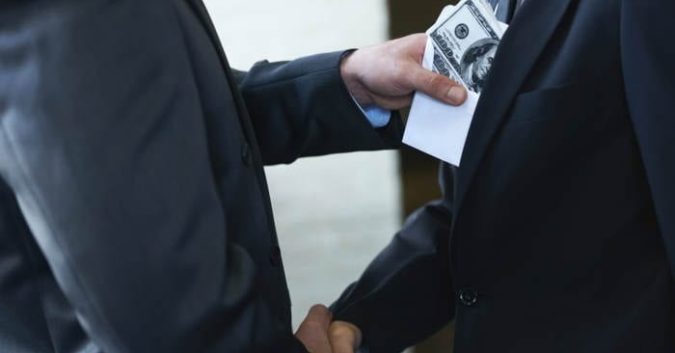Steve Brill, a highly regarded journalist, has collaborated with the Huffington Post to release an investigative, 15-part “DocuSerial” that delves into the corrupt business practices of Johnson & Johnson, specifically focusing on the antipsychotic drug Risperdal, which was marketed and sold to innocent Americans in spite of its documented risks and dangers. Titled “America’s Most Admired Lawbreaker,” Brill’s DocuSerial will focus on the often overlooked “dark side” of the prescription drug industry. As a preface to his findings, Brill writes:
“What follows is the backstage story of how an iconic company marketed a blockbuster drug that raised those hopes and fed on that anxiety. It is a story that in its depiction of strategies, tactics and mindset should make us wonder about the prescription drugs that are so much a part of our lives.”
Johnson & Johnson: A Trusted Company?
As one of the biggest healthcare corporations, with revenues in 2014 totaling $74.3 Billion, Johnson & Johnson is widely admired and trusted by the American public. After all, they are responsible for so many household consumer products that we use every day, such as baby powder, Band-Aid® bandages, Listerine®, and Tylenol®.
What many people don’t know, however, is that about 91% of Johnson & Johnson’s profits come from high-margin medical devices and prescription drugs, including Xarelto®, Invokana®, and Risperdal®.
The company claims to be based on a “Credo” written by Robert Wood Johnson II, son of the company’s founder R.W. Johnson:
“We believe our first responsibility is to the doctors, nurses, and patients, to mothers and fathers, and all others who use our products and services.”
They continually tout the concept of patients first and profits last, but it is clear from Brill’s report that the credo has been all but abandoned over the years.
The Big Problem with Risperdal
Risperdal was originally approved by the U.S. Food and Drug Administration (FDA) in 1993 to treat schizophrenia in adult patients. Despite the fact that it was not approved for pediatric use, Johnson & Johnson promoted the drug to doctors as a safe treatment for children. As a result of the company’s aggressive marketing tactics, Risperdal was prescribed off-label to thousands of children, including young boys who later developed gynecomastia, a devastating condition which causes boys to grow enlarged breasts.
Thousands of lawsuits have been filed against Johnson & Johnson and its Janssen Pharmaceuticals unit by male users of the drug Risperdal, claiming that it caused them to grow breasts. Johnson & Johnson’s illegal sales tactics were specifically highlighted in one of the few cases that has gone to trial, in which a 12-year-old boy grew 46DD-sized breasts after being prescribed Risperdal. Evidence produced at trial, including e-mails, sales training manuals, and business plans, showed that the company had created special sales units designed to illegally target doctors and state mental institutions treating children and the elderly. In February 2015, a jury awarded this plaintiff $2.5 Million.
Verdicts and Settlements Are Just Pocket Change to Johnson & Johnson
In 2013, Johnson & Johnson paid more than $2.2 Billion in criminal and civil fines to settle accusations by the government that it illegally promoted several prescription drugs, including Risperdal, for unapproved uses. According the U.S. Department of Justice (DOJ) “until late 2006, Risperdal was not approved for use in children for any purpose, and the FDA repeatedly warned the company against promoting it for use in children.” Unfortunately, even large settlements like this don’t necessarily make long-lasting financial impacts on big companies like Johnson & Johnson which often set aside millions for the “cost of doing business.”
In a filing with the U.S. Securities and Exchange Commission (SEC), Johnson & Johnson declared:
“In the Company’s opinion…the ultimate outcome of legal proceedings, net liabilities accrued in the Company’s balance sheet, is not expected to have a material adverse effects on the Company’s financial position.”
Is Anyone Held Responsible When Drug Companies Put Profits Ahead of People?
When pharmaceutical companies like Johnson & Johnson break the law, management is rarely held accountable. As Brill points out in Chapter 1:
“The drug companies seem to be able to break the rules with relative impunity, or at least without suffering the kind of punishment that would actually hurt — their stock prices taking a hit or senior executives being held personally responsible.”
According to Brill’s investigation, Johnson & Johnson’s head of Risperdal sales, Alex Gorsky, admitted that he played a hands-on role in what he knew was illegal activity. Nevertheless, nothing negative came of it for Gorsky. In fact, after the investigation, he was ultimately promoted and is now Johnson & Johnson’s current chairman and chief executive.
“The Houdini act that enabled Gorsky, the then-Risperdal sales manager, not only to escape responsibility but also to be promoted to the top of his industry’s most admired company raises equally significant questions about the standards of conduct we can expect from those who run what is becoming the world’s most powerful industry, and about how much we can rely on the medicines they sell.”
So if the companies don’t suffer for their actions, who does? In the case of Risperdal, it’s the thousands of young boys who are now forced to undergo mastectomies and other medical procedures to help mitigate the physical damages caused by the drug – a medication that should have never been prescribed to them in the first place.
If you would like to read the entire text of Chapter 1, you can visit the website for the DocuSeries presented by the Huffington Post.
Band-Aid®, Listerine®, and Tylenol® are registered trademarks of Johnson & Johnson and its affiliate companies.
Risperdal®, Invokana®, and Xarelto® are registered trademarks of Janssen Pharmaceuticals, Inc., a pharmaceutical company of Johnson & Johnson.
